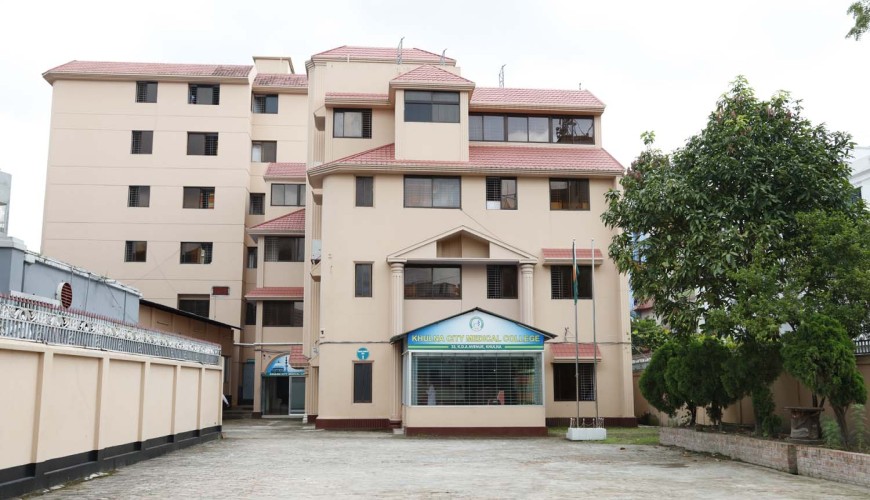MBBS In Bangladesh
— Tenacity Education
About Bangladesh
Bangladesh, officially known as the People’s Republic of Bangladesh, is a South Asian country located on the Bay of Bengal. With a population of over 166 million people, it is the eighth-most populous country in the world. The capital and largest city of Bangladesh is Dhaka, a bustling metropolis known for its vibrant culture, historical landmarks, and thriving economy. The country is renowned for its rich cultural heritage, which is influenced by Bengali, Mughal, and British traditions.

Best University In Bangladesh

Khulna City Medical College
Khulna City Medical College (KCMC) is a well-established medical institution located in Khulna, Bangladesh. Founded in 1992, the college is affiliated with the University of Rajshahi and holds recognition from the Bangladesh Medical and Dental Council (BMDC) as well as the Ministry of Health and Family Welfare. KCMC offers a comprehensive undergraduate program in medical education, leading to an MBBS degree.

Rangpur Community Medical College
Established in 2008, Rangpur Community Medical College has earned a reputation for its commitment to providing quality medical education. Affiliated with the University of Rajshahi, the college offers an undergraduate program leading to an MBBS (Bachelor of Medicine, Bachelor of Surgery) degree. RCMC aims to produce skilled and compassionate medical professionals who can contribute to the healthcare needs of the community.

Shahabuddin Medical College
Established in 2003, Shahabuddin Medical College has made significant contributions to medical education and healthcare in Bangladesh. The college is affiliated with the University of Dhaka and is recognized by the Bangladesh Medical and Dental Council (BMDC). Shahabuddin Medical College offers a comprehensive undergraduate program leading to an MBBS (Bachelor of Medicine, Bachelor of Surgery) degree.
Fact About Bangladesh
- Bangladesh is the eighth-most populous country in the world, with a population exceeding 166 million people.
- It is located in South Asia and shares borders with India and Myanmar (Burma).
- The country is known for its lush green landscapes, rivers, and the world’s largest mangrove forest, the Sundarbans.
- Bangladesh has a rich cultural heritage, with influences from Bengali, Mughal, and British traditions.
- It is also renowned for its vibrant textile industry and is a major exporter of garments worldwide.
Why Study in Bangladesh
- Affordable Tuition Fees: Bangladesh offers relatively affordable tuition fees compared to many other countries, making it an attractive option for international students.
- Quality Education: The country has reputable universities and educational institutions that offer quality programs and degrees in various fields.
- Cultural and Historical Experience: Studying in Bangladesh allows students to immerse themselves in a unique cultural experience and explore the country’s historical landmarks and traditions.
- Diversity and Multicultural Environment: Bangladesh is home to people from different ethnic and religious backgrounds, providing an opportunity for students to learn and interact in a diverse and multicultural environment.
- Scholarships and Financial Aid: The Bangladeshi government and various institutions provide scholarships and financial aid options to support deserving international students.
Education System in Bangladesh
- Primary Education: Primary education in Bangladesh is free and compulsory for children aged 6 to 10. It includes five years of schooling.
- Secondary Education: Secondary education comprises two stages: lower secondary (grades 6-10) and higher secondary (grades 11-12). The completion of secondary education is marked by the Secondary School Certificate (SSC) and Higher Secondary Certificate (HSC) examinations.
- Tertiary Education: Tertiary education in Bangladesh is provided by universities, colleges, and specialized institutions. Bachelor’s, master’s, and doctoral degrees are awarded in various disciplines.
- Major Universities: Bangladesh is home to several prestigious universities, including the University of Dhaka, Bangladesh University of Engineering and Technology (BUET), and Bangladesh Agricultural University.
Student Life in Bangladesh
- Campus Culture: Universities in Bangladesh have vibrant campus cultures with various student clubs, organizations, and events. Students can participate in extracurricular activities such as debates, sports, cultural festivals, and community service.
- Festivals and Celebrations: Bangladesh celebrates various cultural and religious festivals, including Eid-ul-Fitr, Durga Puja, and Pohela Boishakh (Bengali New Year), providing students with opportunities to experience the country’s rich traditions and celebrations.
- Food and Cuisine: Bangladeshi cuisine is diverse and known for its flavors and spices. Students can indulge in delicious dishes such as biryani, bhuna khichuri, and various types of seafood.
- Hospitality and Warmth: Bangladeshis are known for their warm hospitality and friendliness. Students often experience a welcoming and supportive environment, with locals willing to help and engage in cultural exchange.
- Travel and Exploration: Bangladesh offers diverse landscapes, including beaches, hills, and rivers. Students can explore popular destinations like Cox’s Bazar, Sundarbans, and Sylhet during breaks or weekends.
Disadvantages of MBBS in Bangladesh
- Limited Recognition: The recognition of an MBBS degree from Bangladesh may vary across countries. Some countries may require additional licensing exams or specific criteria for graduates to practice medicine.
- Language Barrier: Most medical universities in Bangladesh conduct classes in Bengali. International students may face challenges if they are not proficient in the language. However, some universities offer programs
